One of my favorite stories of “generational” Star Trek comes from novelist/comic book writer PETER DAVID. It was 1989, and he was doing the Star Trek comic for DC. Peter needed to do a little research, so he plunked Wrath of Khan into the VCR and started watching it. A few minutes later, his oldest daughter, Shana, walked into the family room and asked her daddy what he was watching. “I’m watching Star Trek, honey,” Peter replied.
Shana loved to watch Star Trek with her father, so she sat down next to him. After a few minutes, with the most bewildered expression on her face, Shana turned to Peter and asked, totally confused: “Daddy, where’s Worf???”
Back in 1989, with Star Trek: The Next Generation only in its second or third season, most fans had grown up raised on Kirk, Spock, McCoy, and an Enterprise without families or a bartender on board (well, I suppose the ship’s doctor sometimes doubled as a bartender). We liked Next Gen (mostly—it was still early on), but it wasn’t really “our” Star Trek. But for Shana David and other kids who grew up in the 1980s and 1990s, TNG became “their” Star Trek.
I decided to wait until the second week before writing a blog about the the new STAR TREK: PRODIGY because I wanted to see what the show was going to be like once Holo-Janeway was given some decent screen time. But I’m going to avoid diving too deeply into a review because most of my readers have probably already decided that you…
- Love it,
- Hate it,
- Want to wait to get a better idea of where they’re going with it, or
- Will never watch anything the CBS produces with the name “Star Trek” in the title because they are determined to ruin the franchise and screw over the fans.
I’m firmly in group #3, by the way. My initial reaction after the first two-part episode, “Lost and Found”—and I swear this is exactly what I thought when it ended—was: “Well, I liked it more than DISCOVERY.” And I mean that from a writing, pacing, and character development perspective—even though the first episode was only (very) peripherally Star Trek: a few recognizable aliens, a Federation starship, and of course, a few seconds of Holo-Janeway.
But in the end, it wasn’t really MY opinion that mattered this time; it was that of my 11-year-old son, Jayden. Usually, when I ask Jayden how school was or what he thought of dinner, he’ll say, “Good.” But when I asked him to give me his reaction to the first two-part episode of Prodigy, he was much more enthusiastic than usual. He said, “VERY good” with a long and drawn out “VERY.” That’s high praise!
But Jayden went beyond that. You see, he and I have watched a good number of Star Trek episodes together. We’re going chronologically by release date, and we’ve seen all episodes of TOS and TAS, the first six feature films, and we’re currently in season seven of TNG and season two of DS9. (We’re also watching LOWER DECKS together, although Jayden isn’t getting nearly as much out of that show as I am. But we’re still enjoying it immensely.) Amusingly, Jayden has now met Holo-Janeway prior to ever meeting the “real” Kathryn Janeway…so I’m very curious to see what he thinks when we finally start watching Voyager!
Anyway, I asked Jayden if Prodigy felt like Star Trek to him, and he said that it didn’t need to because it wasn’t made for old fans but rather it was supposed to attract new fans. “Most kids don’t know anything about Star Trek, Daddy, so this show will help introduce them to it.” VERY astute observation, Jayden!
And that’s when I realized something: this is the first time since 1973—and possibly ever—that a Star Trek series has been targeted EXCLUSIVELY at children. That’s not to say that adults won’t watch and enjoy Prodigy, as well, but the primary target is tweens and teens. The TOS animated series from Filmation was obviously targeted at children, as well, but not quite in the same way. Back in 1973, Star Trek was popular enough in reruns that most kids knew who Kirk and Spock were. The original animated episodes were just giving children new Star Trek stories more at their level, but things didn’t really need to be explained to them back then because they already got the gist of Star Trek.
Today’s kids are different.
Jayden is obviously an exception because we watch so much Star Trek together, but the vast majority of children today know Star Wars and Marvel backwards and forwards. However, they wouldn’t know Captain Picard from Captain Kangaroo (who?) or a Vulcan from a Klingon. Yeah, maybe they saw the reboot Star Trek feature films in a movie theater (or streamed them), but certainly not enough to really get to know the characters. And let’s face it, Star Trek “reruns” are no longer a thing because so few kids are watching live TV anymore because that is SOOOO five years ago!
And that’s why Prodigy is so UN-Star Trek-like…at least to begin with. CBS knows that the main viewers of this new series are coming into it with essentially a blank slate. So this new series is designed to “teach” them about Star Trek by teaching the various characters about Starfleet and the United Federation of Planets.
The show, airing for free on Nickelodeon, is intended to get these young viewers interested enough in Star Trek that they’ll want to learn more. And how do you learn more about Star Trek? You watch more episodes! And where can you watch more episodes? Well, every Star Trek series is available on Paramount+ for just $6.99/month. Ask your parents to subscribe, kids!
And suddenly you understand Prodigy on a whole other level—it’s a Star Trek commercial for Paramount+!
Well, actually, it’s more than a just a commercial. It’s a very well-executed children’s television series, with fun and interesting characters, whimsical good guys, nefarious bad guys, and slowly-unfolding mysteries. It doesn’t “talk down” to the kids watching it. In fact, it treats them with respect, simultaneously providing simple plots (escape the prison, don’t crash into the collapsing star) but filled along the way with story and interactional complexities along with vocabulary that challenge a young mind to pay attention and keep up but without overwhelming it. And of course, like many other children’s shows, every episode is supposed to teach a positive lesson about teamwork or asking for help or whatever makes a child into a better person each week.
That said, Prodigy doesn’t offer much that kids haven’t seen dozens or hundreds of times before. I recognized many of the same trope characters from other shows Jayden and I watch together like Star Wars: Clone Wars and Rebels, and The Bad Batch: the cocky, smart-mouthed, run-headlong-into-danger main character; the big-and-lumbering comic relief “gorilla”; the strong, poised, and clever protagonist; the tough-with-a-chip-on-his/her shoulder secondary protagonist, a short mascot” character who speaks a language the viewers (and other characters) can’t understand, and a wise guide to navigate them all though danger. Not every show has all of these characters, but the archetypes are common enough to pull from.
I will admit to finding some of the Prodigy characters refreshingly original, however, especially the Medusan. And as for the giant pink Rok-Tahk who turns out to be a timid little girl, well, my jury is still out on her. But I am looking forward to learning more about the main bad guy, The Diviner (voiced amazingly well by JOHN NOBLE), although his henchman, Drednok, kinda screamed “General Grievous” at me. We’ll see if they can do something interesting there.
But hey, kids like the familiar! Just try to get (the majority of) them to try some new food they’ve never tasted before! Thus, the reason that so many children’s television series seem to play the same notes, follow the same framing storylines with the same archetypical characters is because those formulae have been shown for decades to be winners with kids. So when trying to launch a Star Trek series aimed specifically at “recruiting” new and loyal young fans, I’m not surprised that CBS opted for the most reliable path to achieve likability among teens and tweens…nor do I hold anything against them for playing it safe.
Honestly, I kinda wish they’d done that with Discovery.
In fact, it’s very interesting to compare where CBS/VCBS is with Star Trek today—both philosophically and strategically—to where the studio was barely five years ago when Discovery was in pre-production. Back then, CBS had no idea which direction to go in or which audience to target. They were like a many-headed hydra knotted up in scattered strategies and approaches:
- Give Star Trek an entire make-over to attract new fans.
- Make it a prequel just before Kirk to draw in old fans.
- Throw in some familiar characters like Sarek and Amanda and Harry Mudd.
- DON’T show Spock (the season one promise: “No Spock!”).
- Create a new alien race that we’ve never seen before.
- Use the Klingons, too, but make them different.
- Include Section 31 ’cause the fans like that.
- Make the show dark and serialized because that’s what sells these days.
- Make the starships look totally cutting-edge both inside and out.
- Focus on a main character who is NOT the captain.
- Keep things fast-paced…except when they need to slow down…but not for too long…and don’t worry about whiplash.
- Story-schmory—we need gravitas! But make sure there’s a funny character to liven things up.
In the end, the first season of Discovery was a mess, and even CBS realized it (which is why so many changes were made in season two…including bringing in the “forbidden” Spock!). But look what’s happened in the four years since.
After an early stumble, CBS has gotten so comfortable with Star Trek that the studio has decided to do something with Star Trek that’s never been done before: create different types of shows aimed at different kinds of audiences.
Back in the 1980s and for the next 20 years, there wasn’t much of a difference between the kind of viewer who watched TNG, DS9, Voyager, or Enterprise. Despite cosmetic and somewhat thematic differences, those four shows were VERY similar in tone and flavor. If you liked one series, you probably liked the others…at least mostly. Sure, some fans preferred TNG over DS9 (or vice-versa); some were big fans of Voyager or Enterprise…or else avoided them. But all the series were aimed at basically the same kind of viewer…notwithstanding certain nuances of personal taste.
But starting with STAR TREK: PICARD, CBS has begun targeting vastly different audiences. It’s now fairly obvious that Discovery is going after viewers who like fast-paced action, suspense, and serialized season-long story arcs about things that threaten to destroy the galaxy. Picard, on the polar opposite side of the spectrum, moves much more slowly, giving the characters (and viewers) more chances to breathe and absorb the events and complexities of story. And unlike Discovery, which had a love/hate relationship with established Star Trek canon, Picard embraces canon wholeheartedly…although it still has season-long story arcs about things that threaten to destroy the galaxy.
On the other hand, the new STRANGE NEW WORLDS starring ANSON MOUNT as Captain Pike, REBECCA ROMIGN as Number One, and ETHAN PECK as Spock has promised viewers a return to the episodic roots of Star Trek. And while Picard is targeting fans of TNG—who are a little bit younger in general than fans of TOS—SNW is definitely going after the more classic TOS Trekkie and (hopefully) avoiding the season-long story arcs about things that threaten to destroy the galaxy.
And then there’s LOWER DECKS, which targets a completely different audience. Every though it’s a cartoon, Lower Decks is not for kids (at least, not young ones). And it’s not for every kind of Star Trek fan either. You sorta need to have the kind of outlandish and sick sense of humor that appreciates the sorts of shows that air on Adult Swim on the Cartoon Network, including (of course) Rick & Morty (which the creator of Lower Decks, MIKE McMAHAN, used to write and produce for). If you’re the kind of person who finds Rick & Morty and shows like it to be comedically brilliant and inspired (like me), and if you know your Star Trek minutiae backwards and forwards—and you really need to check both of those boxes—then Lower Decks is aimed at you.
But that’s the amazing thing: CBS actually can “aim” Star Trek now to different audiences. Think about what that could mean for the franchise, the opportunities it opens up. Sure, there would likely be hits and misses, and some fans might stubbornly refuse to watch certain Star Trek series out of a feeling of disgust and betrayal. But at the same time, just imagine all of the untapped potential and unmapped terrain these new shows could cover. Star Trek really could go where it’s never gone before. Picture some of these ideas…
- A Star Trek version of The West Wing focusing on the politics of the Federation,
- A Star Trek-meets-The-X-Files spooky thriller (possibly looking at the Department of Temporal Investigations),
- The Ferengi Home Shopping Network (maybe a comedy min-series?),
- A Star Trek western (hey, it worked for The Mandalorian!),
- A Star Trek “Sopranos” dealing with the Orion Syndicate and/or a Star Trek police procedural,
- Starfleet Medical, all the drama of Grey’s Anatomy and 9-1-1 but on a hospital ship!
And not everything has to be an ongoing series. Picard is doing just three seasons of 10 episodes each. Disney+ will be doing even shorter series like Obi Wan Kenobi with EWAN MacGREGOR, which will be only six episodes total.
The world of sci-fi today is so much different than it has EVER been before. There literally are no rules anymore! So don’t worry if you don’t love Prodigy as much as an 11-year-old. You’re probably not 11. But that’s okay. As older Trekkies like me age up (and eventually out), CBS is now preparing the “next generation” with shows like Prodigy and targeting other audiences, as well, with shows that will provide convenient entry ramps into this universe that we love so much.
In this way, CBS is now taking on the mission of ensuring that Star Trek will, indeed, live long and prosper…

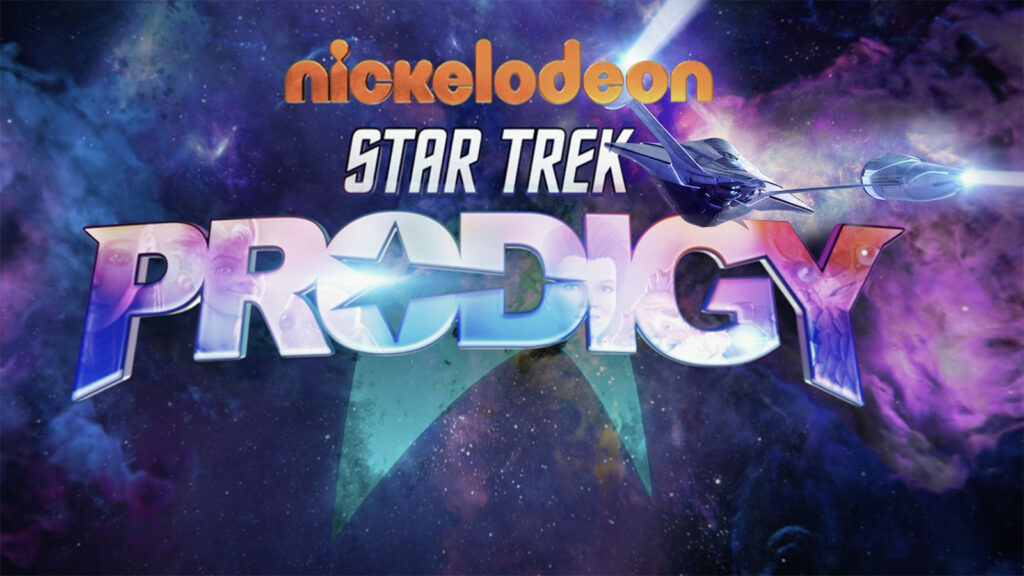
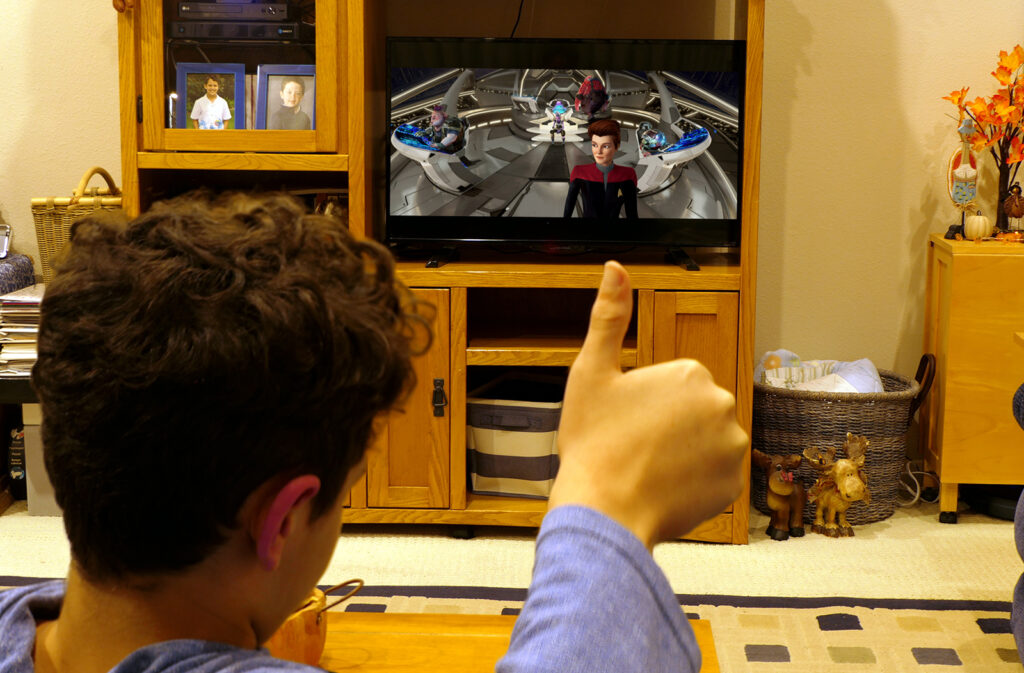
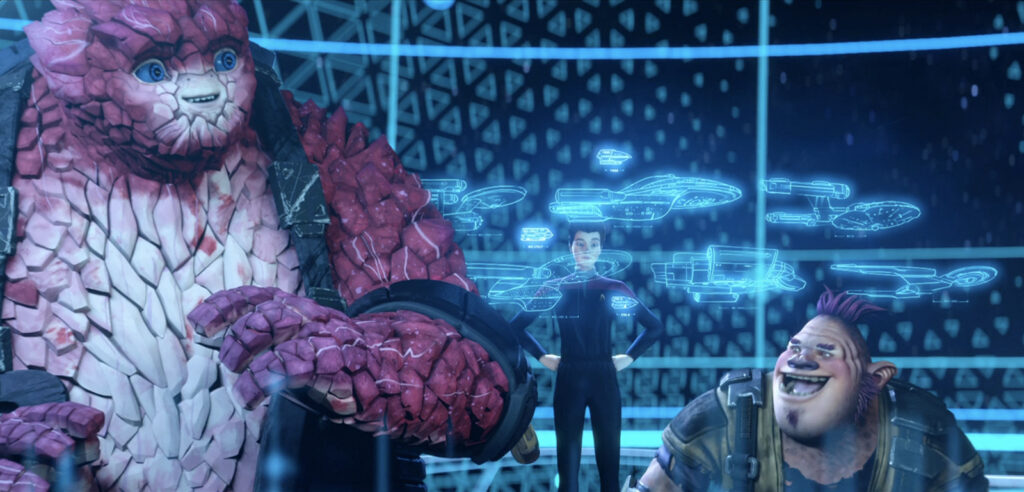
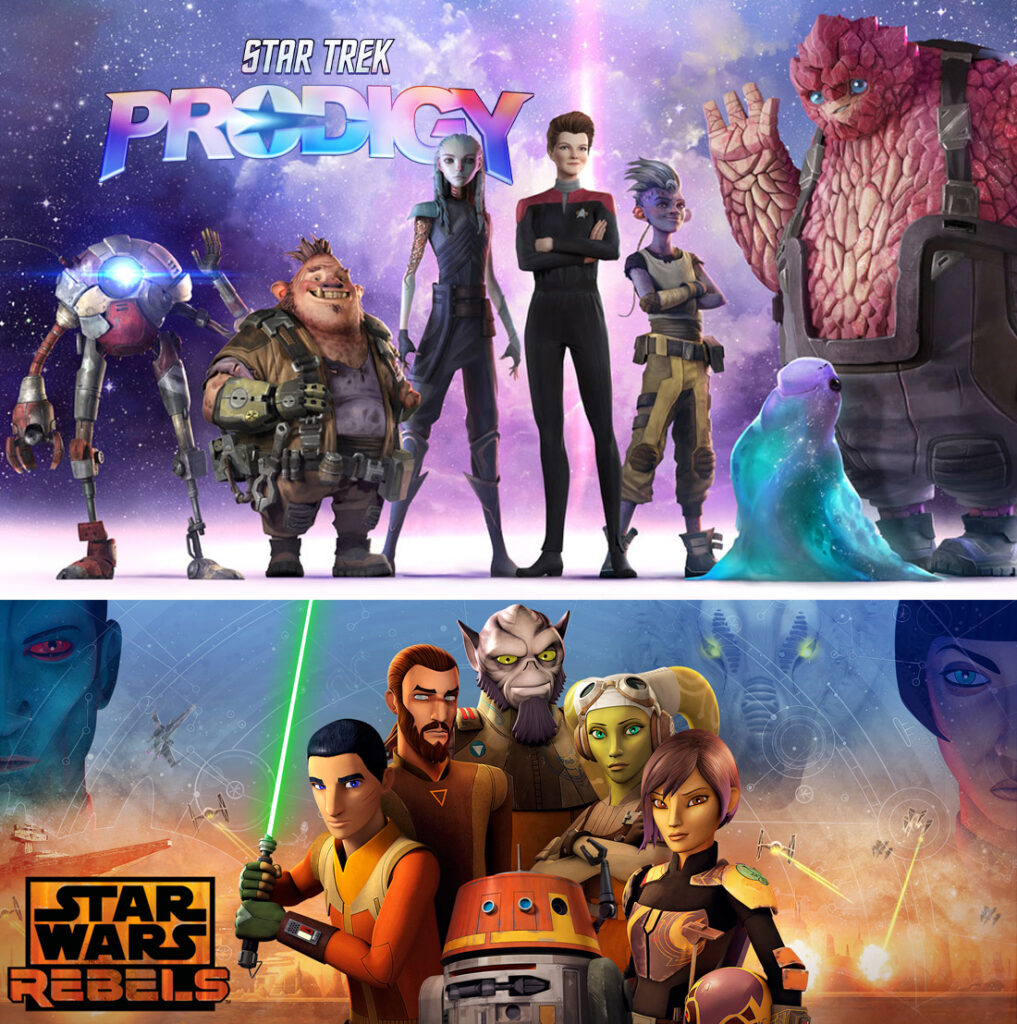
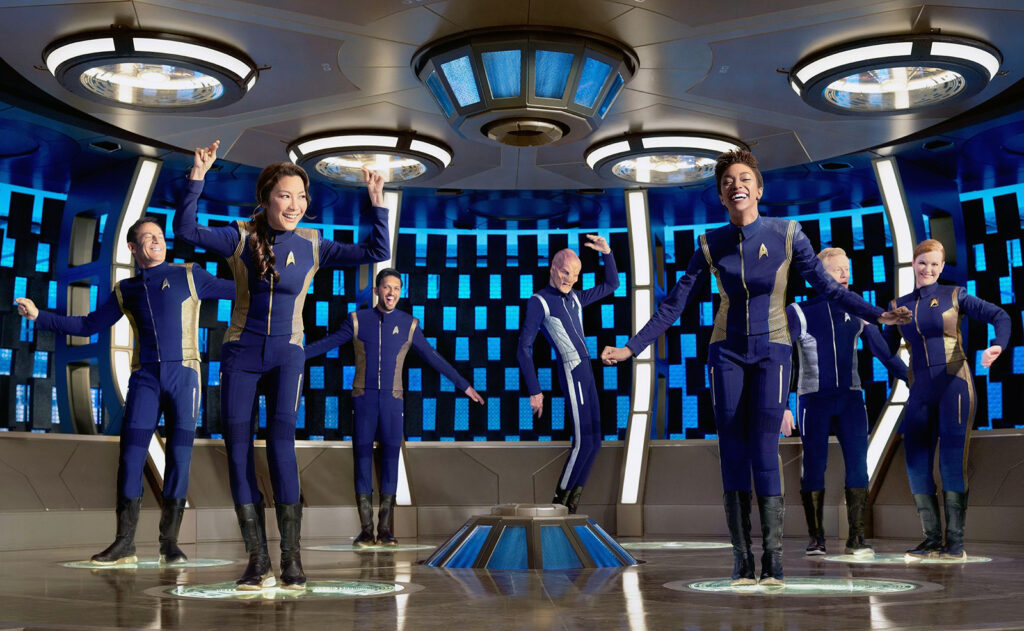
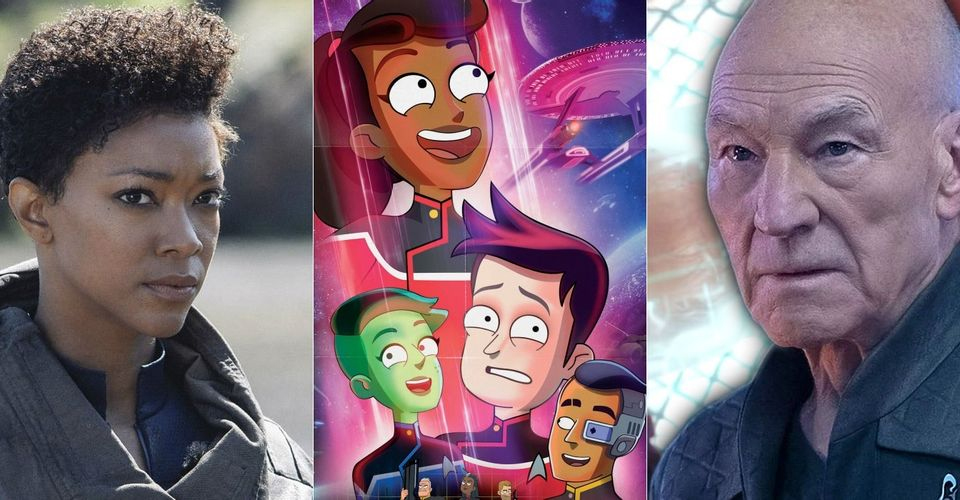
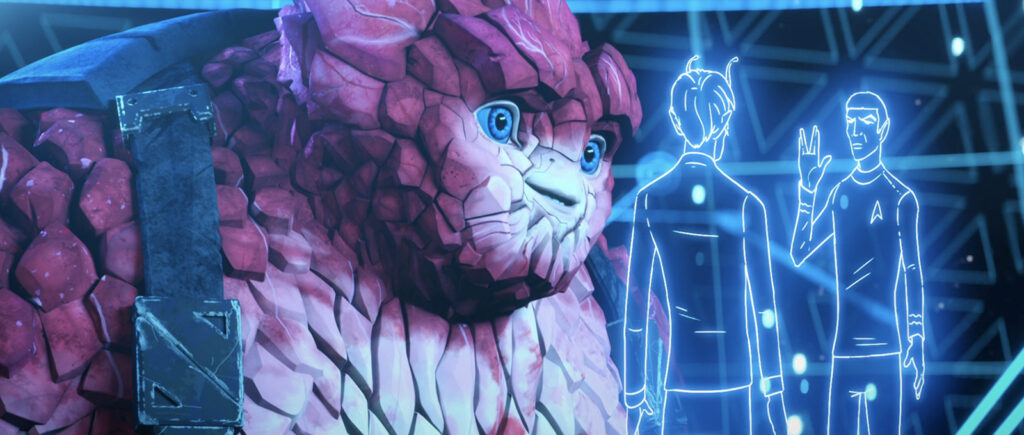
I’m with you on this one Johnathan. I’ve only seen the first episode so far. I enjoyed it but I fully realize it’s not for me. I’m glad Jayden likes it because that means Star Trek could stick around as his generation ages.
I would love to see some of those other show types you mentioned especially a Police Procedural.
I wanna see a West Wing version of Star Trek the most.
But what would Gene Roddenberry would think of PRODIGY?
He rejected Filmation’s original idea to do a series (without the original cast) that would focus on a cadet ship! (Which was reworked successfully as their live action SPACE ACCADEMY several years later)
For that matter, what would he have thought of LOWER DECKS?
I often hear fans say, “What would Gene have thought of…?” But honestly, I’m not convinced that Gene Roddenberry made the best Star Trek. Deep Space Nine broke almost every “rule” Gene set forth for Next Generation, and yet, I think DS9 was the best Trek series in many ways BECAUSE it broke so many of Gene’s “rules.” So honestly, I don’t much care what Gene would have thought about Lower Decks because he came from another era when such a show was almost unheard of. At the time of Gene’s death, The Simpsons had only been on for a couple of seasons, and remember all of the controversy THAT show stirred up? I recall George H.W. Bush campaigning at the Republican National Convention in 1992 and saying, “We’re going to keep trying to strengthen the American family–to make them more like the Waltons and less like the Simpsons.” Gene came from that same greatest generation who lived through the Great Depression, fought in WWII, and saw the birth of television with wholesome family entertainment. Neither could understand that America had shifted into new normals where families weren’t all cookie-cutter Waltons or Cleavers or even Bradys. Gene would be welcome to his opinion, of course, but I wouldn’t want him to be an anchor or a censor on brilliant, creative television.
I have to admit, CBS had a good blueprint to work from in the way Pocket Books used to diversify -all- kinds of Trek while they had the book license. Not everything, admittedly, but …
DTI – Department of Temporal Investigations? Check.
Gary Seven and the Eugenic Wars? Check.
Young Trek academy? Check.
Federation politics? Check.
Starfleet Corps of Engineers? Check.
I swear there was even a Star Trek Law and Order-type book somewhere.
Section 31, check.
Good lord, I’m surprised there’s not enough fanfilms based on -those-.
Give them time, David. 😉
That was an interesting read. I haven’t watched Prodigy yet but sounds like one I’ll point my son at (he also sums up his school days as ‘good’ btw, it’s universal 🙂 )
The BBC being paid for by a TV License has always had the latitude to make some shows that are niche but with a decent budget. The result is that we all ended up with a show or shows that we really love – but are not for everyone. The commercial stations generally have to favour shows that appeal to lots of people, for advertising, usually that means there is not such deep love there (it can happen, it’s just harder to do).
Now we have streaming and subscription we have loads of targetted, super high budget shows that groups of people seriously love and are happy to shell out money to stream. I can see why CBS are going that way, I’d far rather have different types of Trek than a one size fits all melange.
I am in the ‘we’ve never had it so good’ camp. As I think you’ve said, having this much Trek in production (not to mention everything else) is fantastic. We are getting to a point where we there is something for everyone and we can have all have our ‘special thing’.
Of course, I say all this. If they ever reboot Stargate (and make a hash of it at first) my faith will be sorely tested. 🙂
Yeah, I’m not sure Stargate needs to be rebooted…just make another new spin-off. 🙂
Well, I knew just from the trailers of Prodigy it’s not for me. But, I am actually looking forward to the new “Michael Burnham Show” 4th season. Are you planning to write any predictions, since it’s qued up for next week premier? Of course, Strange New Worlds has me “very excited” for it’s premier. I would also add, the 3rd & last season of Lost in Space is probably at the top of my list for December, I think it starts. I keep passing over The Expanse, maybe I’ll jump in on that later this winter.
No predictions about Discovery other than the same general mix of hope and dread that I have just before every season.
Lost in Space season three has been a long-time in coming. Jayden and I really loved that show (the reboot), and I can’t wait until its return. Sad that it’ll only last three seasons, but then again, so did the original.
As for The Expanse, fight your way through season one and you’ll be glad you did. Season one is a chore and a confusing mess, but it’s necessary in order to truly absorb what comes next. But seriously, drink lots of caffeine before and during each episode of season one. Seasons two and three are their own caffeine…and season four oscillates. But overall, it’s like nothing you’ve ever seen in sci-fi before…even if you think you have. The ingredients are similar to things that came before, but those ingredients are mixed together and prepared into a sumptuous dish that satisfies on multiple levels.